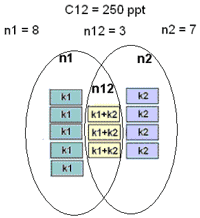Monetization of a Virus
In a paper released last week, the researchers explained how they developed software that could analyze the sound of someone typing on a keyboard for just ten minutes and then piece together as much as 96 percent of what had been typed. –link
This just begs to be written as a virus payload for many different platforms. Imagine your mobile or computer listening as you enter passwords and sending the data back for analysis.
This would render password masking (hiding the characters as they are entered) ineffective, and bring the advantages of a keystroke logger without leaving a telltale physical change.
The cash-out is both simple and varied. The virus could look for banking or stored value logins. These could be then stored, until critical mass, followed by either a mass cash out, or perhaps a small transaction that could go unnoticed.
Fortunately, things are made much harder by background noise or music. So perhaps risk conscious individuals or companies will start insisting on music everywhere.





